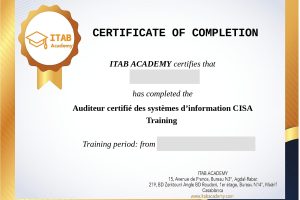Unleash Your Potential: Choosing the Right Management Certification
In the dynamic world of business, effective management is essential for driving growth, maximizing productivity, and fostering a culture of innovation and success. Whether you’re an aspiring manager looking to kickstart your career or a seasoned professional aiming to advance to the next level, earning a management certification can provide you with the skills, knowledge, and credentials needed to excel in leadership roles. This comprehensive guide offers valuable insights and practical tips to help you select the perfect management certification to achieve your professional goals and aspirations.
**1. Define Your Management Goals and Objectives**
Begin your journey to choosing the right management certification by defining your management goals and objectives. Consider the following questions:
– What specific management skills or competencies do I want to develop or enhance?
– What are my short-term and long-term career aspirations in management?
– Are there any specific industries or sectors I want to specialize in as a manager?
– How do I envision myself leading and inspiring teams to achieve organizational success?
By clarifying your management goals and objectives, you can focus your search on certifications that align with your career aspirations and development needs.
**2. Research Management Certification Options**
Once you have a clear understanding of your management goals, it’s time to research certification options available to you. Consider the following factors when evaluating management certifications:
– Accreditation and Credibility: Look for management certifications offered by reputable institutions, universities, or professional associations that are accredited and recognized for their quality and credibility.
– Curriculum and Course Content: Review the curriculum and course content of each certification program to ensure it covers the management skills, theories, and practices you wish to learn or develop.
– Delivery Format and Flexibility: Determine your preferred learning format, whether it’s in-person, online, or blended learning, and choose a certification program that fits your schedule and learning style.
– Instructor Expertise and Support: Research the qualifications and experience of the course instructors to ensure they are knowledgeable and experienced in management principles and practices. Also, consider the level of support and mentorship offered throughout the certification program.
– Reviews and Testimonials: Read reviews and testimonials from past participants to gauge their satisfaction with the certification program, instructors, and overall learning experience.
**3. Assess Certification Requirements and Prerequisites**
Before committing to a management certification program, carefully review the certification requirements and prerequisites to ensure you meet the eligibility criteria. Consider the following:
– Education and Experience: Some management certification programs may have specific educational or professional experience requirements that you must meet to enroll in the program.
– Prerequisite Courses or Exams: Determine if there are any prerequisite courses or exams you need to complete before enrolling in the certification program.
– Exam Format and Passing Score: Familiarize yourself with the exam format, passing score, and any other requirements you need to fulfill to obtain the certification.
**4. Consider Career Benefits and Opportunities**
Evaluate the potential career benefits and opportunities associated with completing the management certification program. Reflect on the following:
– Career Advancement: Determine how the management certification can enhance your management skills, qualifications, and marketability to employers and advance your career prospects.
– Salary Increase: Research the average salary increase or earning potential associated with obtaining management certifications in your industry or field.
– Job Opportunities: Explore job boards, career websites, and LinkedIn profiles to see if employers value and prioritize candidates with management certifications.
**5. Reflect on Return on Investment (ROI) and Long-Term Value**
Lastly, consider the return on investment (ROI) and long-term value of completing the management certification program. Reflect on the following:
– Cost of Certification: Evaluate the cost of the certification program, including tuition fees, study materials, and exam fees, and determine if it fits within your budget.
– Potential ROI: Assess the potential ROI of obtaining the management certification in terms of career advancement, salary increase, and job opportunities.
– Long-Term Value: Consider the long-term value of acquiring management skills and credentials that can benefit your career growth and success in the years to come.
**Conclusion**
Choosing the right management certification is a crucial step towards achieving your management goals and advancing your career as a leader. By defining your management goals, researching certification options, assessing requirements, considering career benefits, and reflecting on ROI and long-term value, you can make an informed decision and select the perfect management certification to unleash your potential and propel your career forward. Remember to invest time and effort into your decision-making process to ensure that the management certification aligns with your aspirations and empowers you to become a successful and impactful manager in your organization and beyond.




